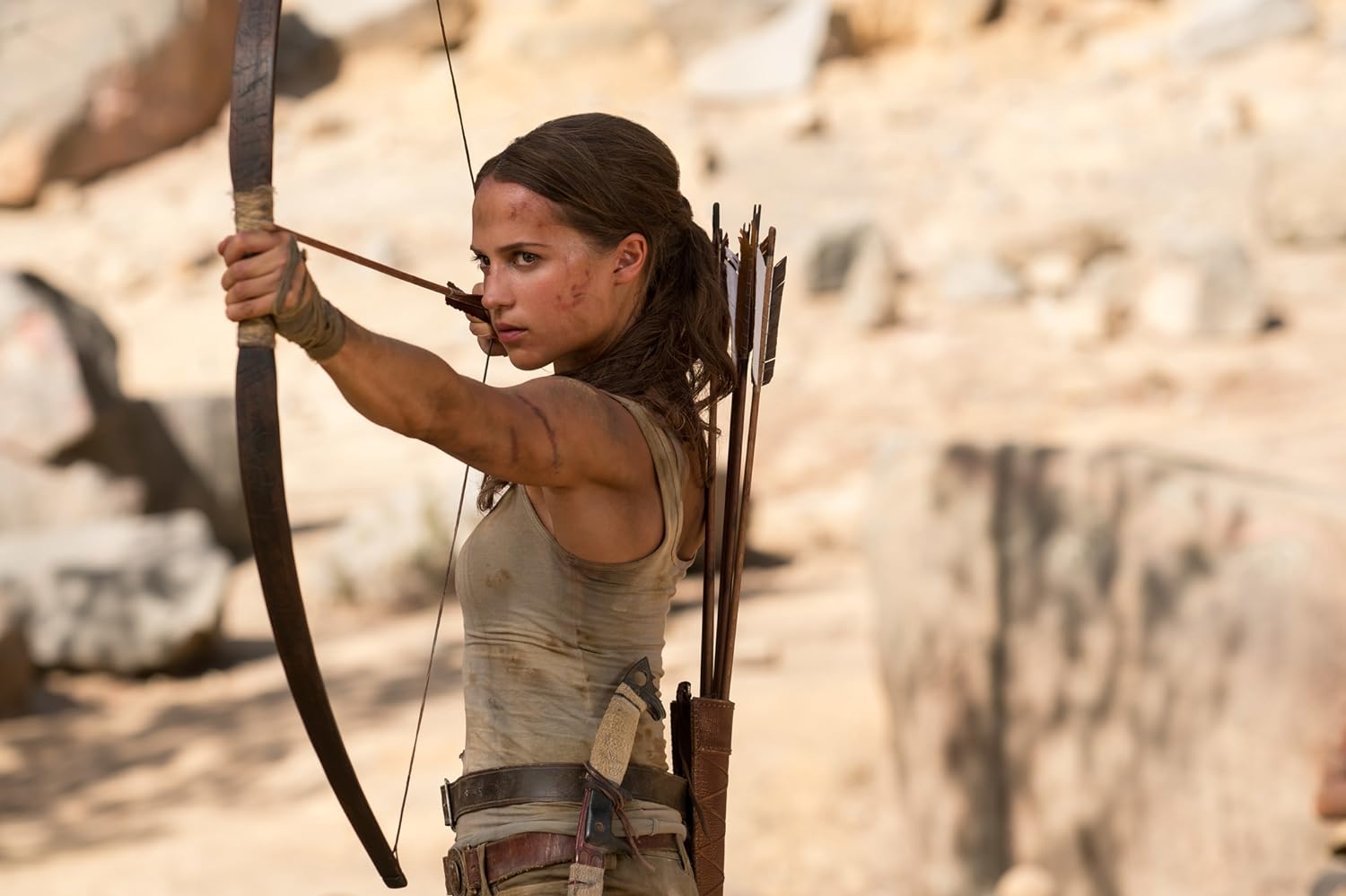 |
| Alicia Vikander in Tomb Raider. Image courtesy Warner Bros. |
For
the last few years I've done a best of list to cap off a given year,
along with a special spot dedicated to the worst movie. As 2018 ends,
I wanted to try something a little different and instead give some
final attention to movies that won't garner a lot of attention in
2019 and beyond. These are movies that don't stand out this year,
films you'll skip over while browsing through Netflix, HBO GO, or
Amazon Prime. Some are big budget flops that won't deliver a sequel,
some are good movies that just can't find an audience, and others are
missed opportunities.
Before
we pour one out for the forgotten flicks of 2018, here's a short list
of some of the best and worst 2018 had to offer.
Highlights:
Thoroughbreds,
Black
Panther,
Tully,
Spider-Man:
Into the Spider-Verse,
First
Man
Lowlights:
Death
Wish,
Fifty
Shades Freed,
Pacific
Rim: Uprising,
Jurassic
World: Fallen Kingdom
Uncle
Drew
 |
| Kyrie Irving in Uncle Drew. Image courtesy Lionsgate. |
What
is it?
A continuation of Kyrie Irving's Pepsi Max commercials starring the
eponymous old baller.
Is
it good?
Nope.
Is
any of it memorable?
Watching Irving dribble is always a treat. Chris Webber was clearly
having a good time, and Tiffany Haddish is always fun. There's not
much more to say about this movie otherwise; Irving isn't much of an
actor, and the plot is uninspired.
The Sisters
Brothers
 |
| Joaquin Phoenix and John C. Reilly in The Sisters Brothers. Image courtesy Annapurna Pictures. |
What
is it?
A neo-Western about greed, friendship, and dedication to family.
Is
it good?
Very much so.
Is
any of it memorable?
The opening scene is efficient, brutal, and sets the tone for the
rest of the movie. John C. Reilly and Joaquin Phoenix show great
camaraderie as the titular siblings, and the film continually defies
genre expectations. It's a really, really good Western, which sort of
dooms it to be ignored.
Life
of the Party
 |
| Melissa McCarthy in Life of the Party. Image courtesy Warner Bros. |
What
is it?
A modern take on Back
to School
starring Melissa McCarthy.
Is
it good?
Not at all.
Is
any of it memorable?
Maya Rudolph earns a few laughs for being herself. Gillian Jacobs and
Heidi Gardner play characters who belong to a way more interesting
movie than this. McCarthy's talents are wasted in this movie, which
is particularly strange given she and her husband, Ben Falcone, wrote
it.
Skyscraper
 |
| Dwayne Johnson in Skyscraper. Image courtesy Universal Pictures. |
What
is it?
Dwayne Johnson's take on Die
Hard.
Is
it good?
Unfortunately no.
Is
any of it memorable?
Just Johnson's performance. This is all the more disappointing
considering even his lesser movies offer some redeeming value.
I
Feel Pretty
 |
| Amy Schumer in I Feel Pretty. Image courtesy STX Films. |
What
is it?
A send up of body swap movies starring Amy Schumer.
Is
it good?
It's pretty bad.
Is
any of it memorable?
Aidy Bryant and Busy Philips get a lot from underwritten roles. The
premise is clever, with potential for both high comedy and pointed
social criticism. It doesn't deliver though due to a mix of poor
directing, an unclear premise, and precious few jokes for Schumer.
Tomb
Raider
 |
| Alicia Vikander in Tomb Raider. Image courtesy Warner Bros. |
What
is it?
A reboot of the Tomb
Raider series,
with Alicia Vikander as Lara Croft.
Is
it good?
It's fine.
Is
any of it memorable?
A couple of the fight sequences are solid. Vikander shows promise as
an action heroine. The idea behind watching Croft grow into her
eventual role as an iconic adventurer is interesting. With a better
script (one that adhered more closely to the video game) and stronger
direction this could have been a pretty spectacular action flick.


